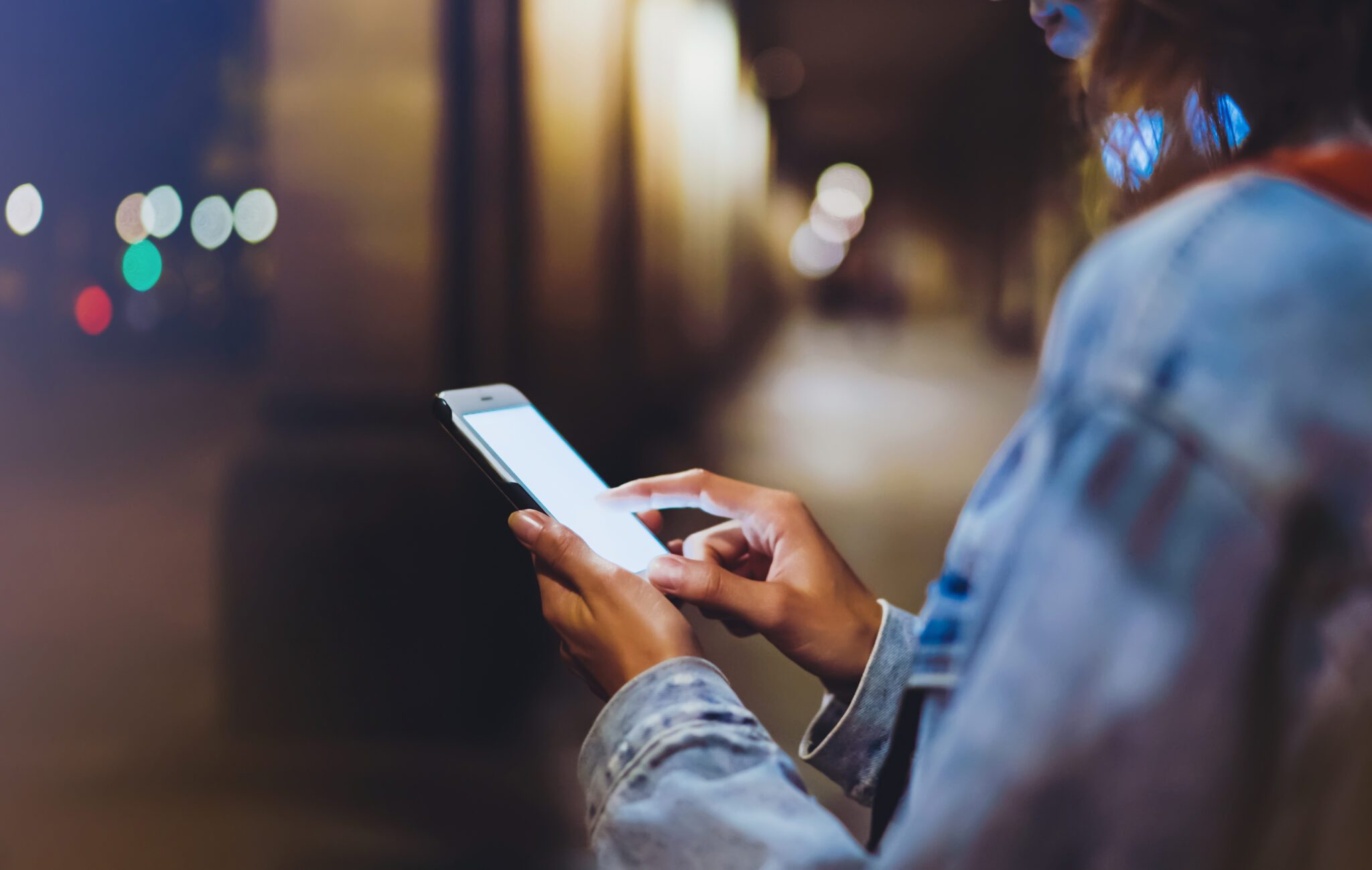 If you’re like most people, you probably spend a large amount of your day staring at a screen. Whether you’re at work on your computer or scrolling through social media on your phone, all of that screen time can be taking a toll on your skin. Blue light, which is produced by electronic devices, can penetrate the skin more deeply than UVA and UVB rays, causing damage and accelerating aging. In this post, we’ll take a closer look at how blue light affects your skin and what you can do about it.
If you’re like most people, you probably spend a large amount of your day staring at a screen. Whether you’re at work on your computer or scrolling through social media on your phone, all of that screen time can be taking a toll on your skin. Blue light, which is produced by electronic devices, can penetrate the skin more deeply than UVA and UVB rays, causing damage and accelerating aging. In this post, we’ll take a closer look at how blue light affects your skin and what you can do about it.
Firstly, let’s talk about what blue light is. Blue light is a type of high-energy visible (HEV) light that is emitted by electronic devices such as your phone, computer, and tablet. It is also found in natural sunlight, but it is exposure to blue light from screens that can have a negative impact on your skin. Blue light can penetrate the skin more deeply than UVA and UVB rays, reaching the dermis where collagen and elastin, the proteins responsible for maintaining the skin’s structure and elasticity, reside.
One of the biggest concerns with blue light exposure is its effect on collagen and elastin. Studies have shown that blue light can cause damage to these proteins, leading to accelerated aging, fine lines, and wrinkles. In addition, blue light exposure can cause inflammation and hyperpigmentation, leading to uneven skin tone and dark spots.
So, what can you do to protect your skin from blue light damage? One of the most effective ways to shield your skin from blue light is to use broad-spectrum sunscreen. Not only will this protect your skin from the harmful effects of UV radiation, but it will also help to block out some of the blue light emitted by electronic devices. Another option is to use skincare products that contain antioxidants, such as vitamin C or E. Antioxidants can help to neutralize the free radicals that are created by blue light exposure.
It’s also a good idea to take breaks from your device throughout the day. Strain your eyes less by following the 20-20-20 rule. Every 20 minutes take at least a 20-second break, and look at something about 20 feet away. This will help to reduce the amount of blue light your skin is exposed to and give your eyes rest too.
Blue light-blocking skincare products are becoming increasingly popular as more and more people become aware of the damage that blue light can cause to their skin. These products are formulated with special ingredients such as antioxidants and mineral-based filters that act like shields to deflect blue light away from your skin. They work by absorbing the energy from blue light waves and dispersing it as heat, thus protecting your skin from harm. We have a couple of favorites that fall into either the antioxidant or superscreen category (sunscreens that offer antioxidant protection).
Antioxidants:
- Revision C+ Correcting Complex 30%
- SkinCeuticals CE Ferulic
- SkinCeuticals Metacell Renewal
- SkinBetter Alto
SuperScreens:
- Colorscience Sunforgettable
- Colorscience Body Shield
- Skinbetter ToneSmart
- Alastin Silkshield
- Elta UV Clear
- Isdin Eryfotona Ageless
Finally, investing in blue light-blocking glasses is another way to protect your skin. Blue light-blocking glasses use special lenses that block out the blue light emitted by electronic devices. Wearing these glasses while you use your phone or computer can help to reduce the amount of blue light that your skin is exposed to.
In conclusion, while blue light from screens is a relatively new concern, it’s important to understand its impact on your skin. By taking steps to protect your skin from blue light exposure, such as using a good sunscreen, taking breaks from your device, and using blue light-blocking glasses, you can help to prevent premature aging and keep your skin looking its best. So next time you’re tempted to check your phone one last time before bed, remember the toll it might be taking on your skin and give both your skin and eyes a break.
About the Author
 Daniel Barron, MPAS, PA-C has worked in Dermatology for 12 years. He graduated top of his class in 2010 from The University of Texas-Pan American Physicians Assistant Master’s Program in Edinburg, Texas. Daniel has gained most of his Dermatology experience working in Texas and the boroughs of NYC. Daniel has extensive experience in diagnosing and treating a variety of skin disorders that include: eczema, acne, hair loss, melasma, and skin of color. He has a special interest in nutritional Dermatology and he is certified in cosmetic procedures such as Botox and fillers by the Aesthetic Medical Educators Training course and Allergan Medical Institute.
Daniel Barron, MPAS, PA-C has worked in Dermatology for 12 years. He graduated top of his class in 2010 from The University of Texas-Pan American Physicians Assistant Master’s Program in Edinburg, Texas. Daniel has gained most of his Dermatology experience working in Texas and the boroughs of NYC. Daniel has extensive experience in diagnosing and treating a variety of skin disorders that include: eczema, acne, hair loss, melasma, and skin of color. He has a special interest in nutritional Dermatology and he is certified in cosmetic procedures such as Botox and fillers by the Aesthetic Medical Educators Training course and Allergan Medical Institute.
